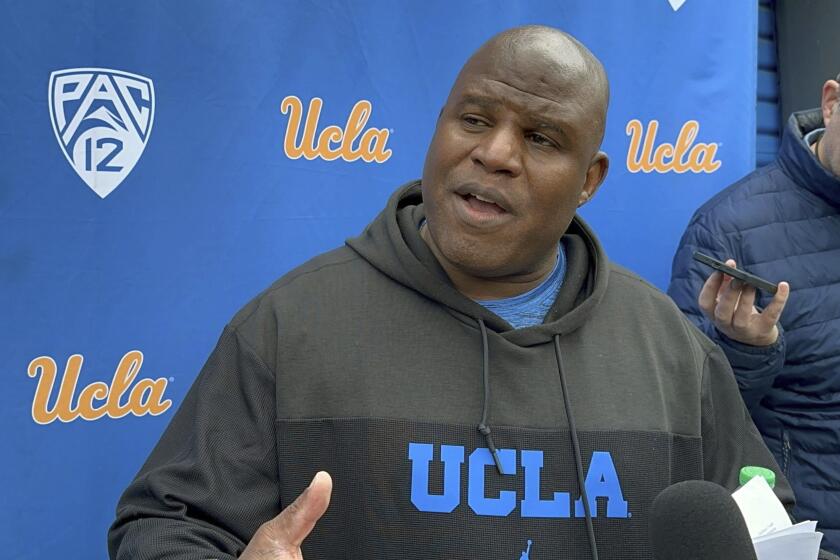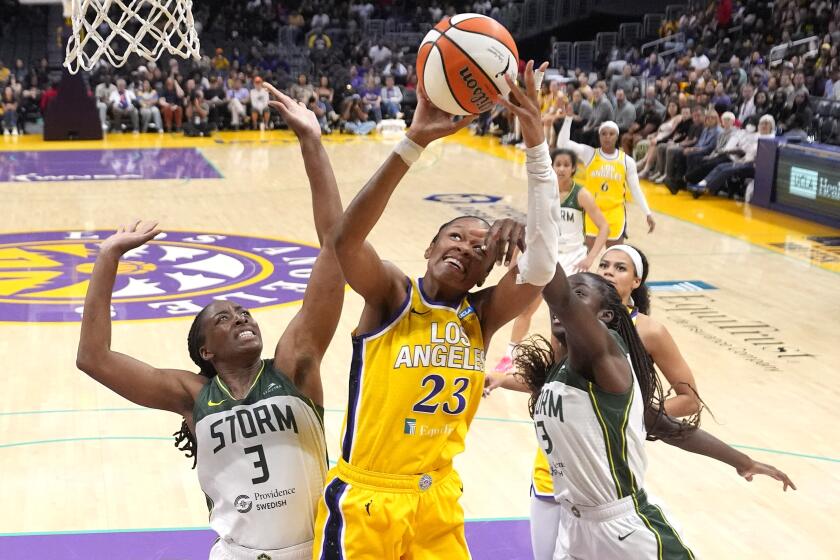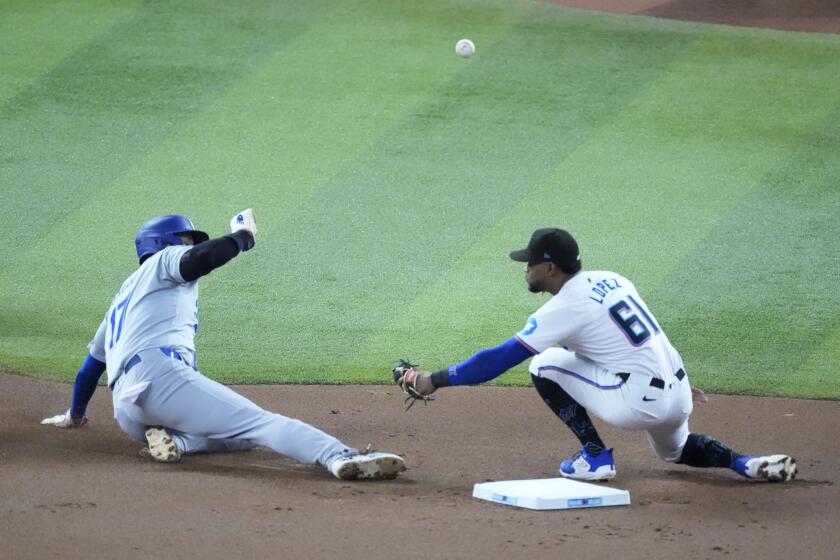Manager Makes a Book on Little League
Ned McIntosh couldn’t find a book on how to manage a Little League baseball team so he wrote his own.
McIntosh, 55, the president of a small manufacturing company, is in his 18th year of managing Little League teams of boys 9 to 12 years old.
“Managing Little League” has been published by Contemporary Books, Inc., of Chicago. The 173-page book, illustrated by 36 pictures, bears the stamp of approval by Little League Inc. of Williamsport, Pa.
“When I first started coaching Little League, I was amazed at the lack of material for neophyte coaches,” McIntosh said in a telephone interview from his Summersville office.
“I went to bookstores and libraries. The Little League organization had some, but not enough. I found some books on how to play, but they all pointed at the adult.”
After 15 years of managing Little League, he went to Contemporary Books and the publishers found what McIntosh found--virtually nothing.
“They did quite a bit of research before deciding to publish and they decided there was a definite need for something like this since there was nothing on the market.”
McIntosh got into Little League managing via a familiar route--his sons. The native of Davis, W.Va., who spent most of his boyhood in Pittsburgh where his father taught school, coached his three sons in three different states--Bob in a league near Philadelphia, Tom in New Jersey and Jim in West Virginia.
The manager-author said Little League “has to be kept in proper perspective by the adults, both the coaching adults and the parents who sometimes aren’t as objective as they should be about their own children.”
McIntosh cited the Summersville league’s handling of the parent problem.
“We make the umpires and managers train together,” he said. “One thing we do if there is a problem with a parent, the umpire gets the manager and they go together to address the parent right there in the stands.
“In some leagues, the managers incite the parents.”
The underlying philosophy of “Little League Managing,” said McIntosh, is --”keep it simple and make it fun.
“When you are dealing with part-time coaches and part-time players with a couple of practices and a couple of games a week, you can’t expect 9 to 12-year-old boys to become polished baseball players. The best you can hope to accomplish is teaching them the basics of the game.”
McIntosh discovered early in his managing the necessity of making it fun.
“One of the more talented, athletically, players decided it was more fun fishing so he quit and went fishing,” he recalled. “You can’t impose training on them, like at the higher levels of competition.”
The manager described an incentive program similar to that used by college football coaches.
“We have these little felt stars, costing about a penny apiece,,” he said. “You’d think they were made of gold the way the kids work for them. They crave recognition. We make sure before the season that all the boys are going to earn some recognition. For a 9-year-old, an accomplishment might be catching a fly ball. You would expect a 12-year-old to do that.”
The author opposes using the so-called Vince Lombardi philosophy in Little League.
“My philosophy is the opposite of the Vince Lombardi philosophy of ‘winning is everything.’ In Little League, winning is not everything. As long as a boy is learning and having fun, that is Little League.”
McIntosh allowed it is “more fun” to win.
More to Read
Go beyond the scoreboard
Get the latest on L.A.'s teams in the daily Sports Report newsletter.
You may occasionally receive promotional content from the Los Angeles Times.










